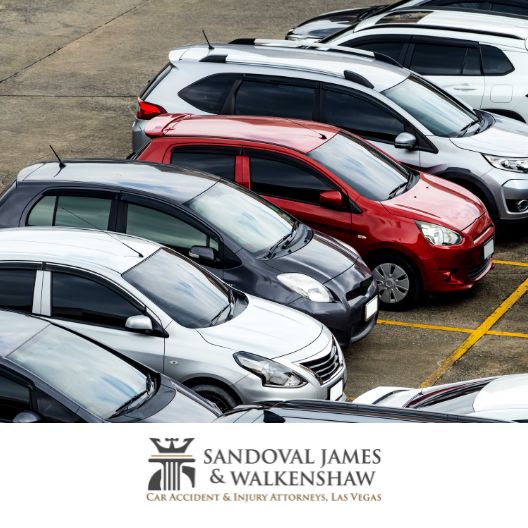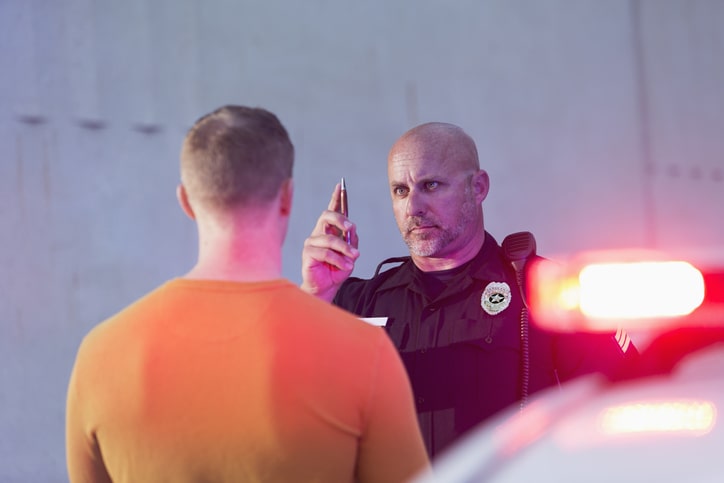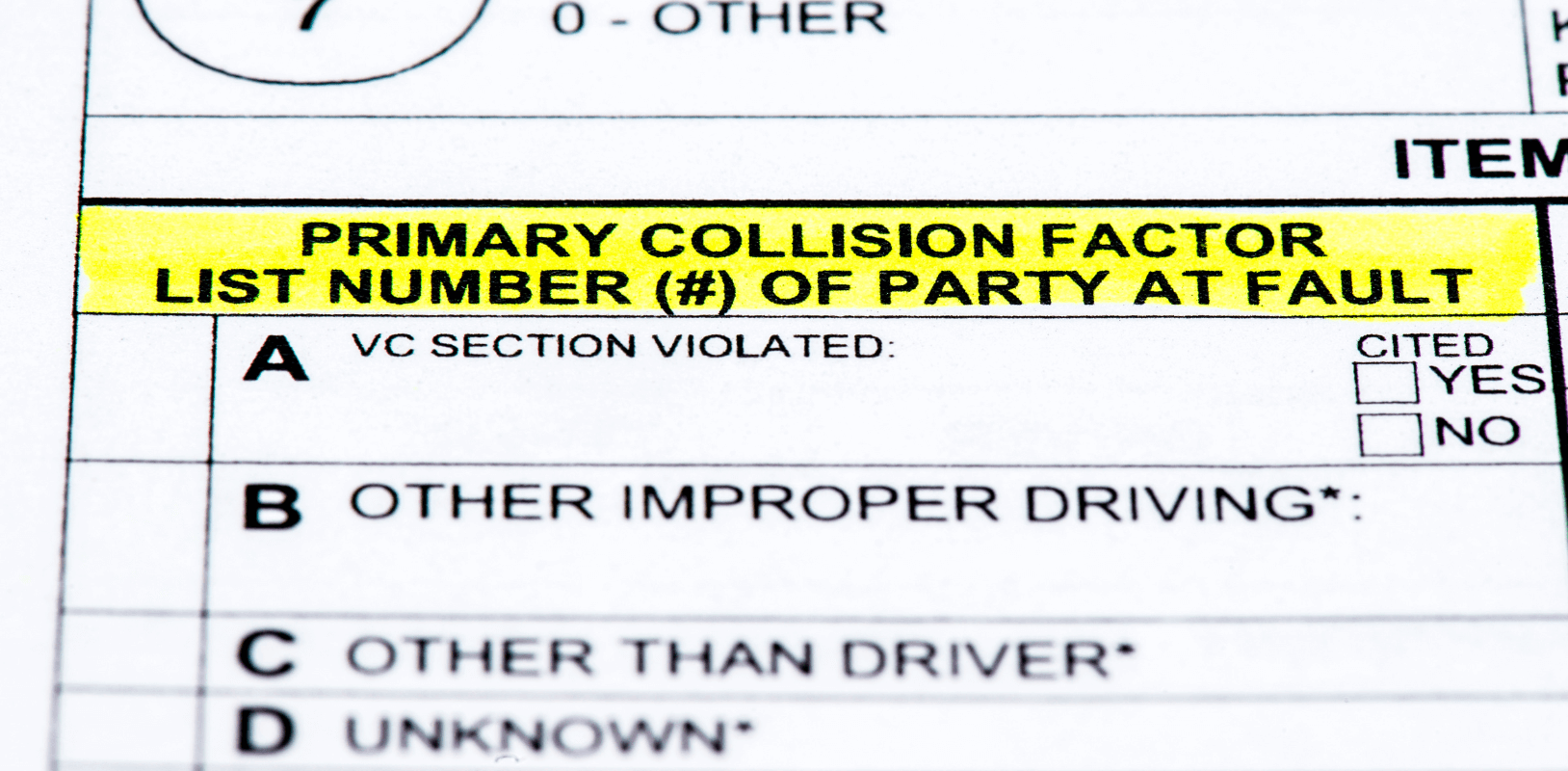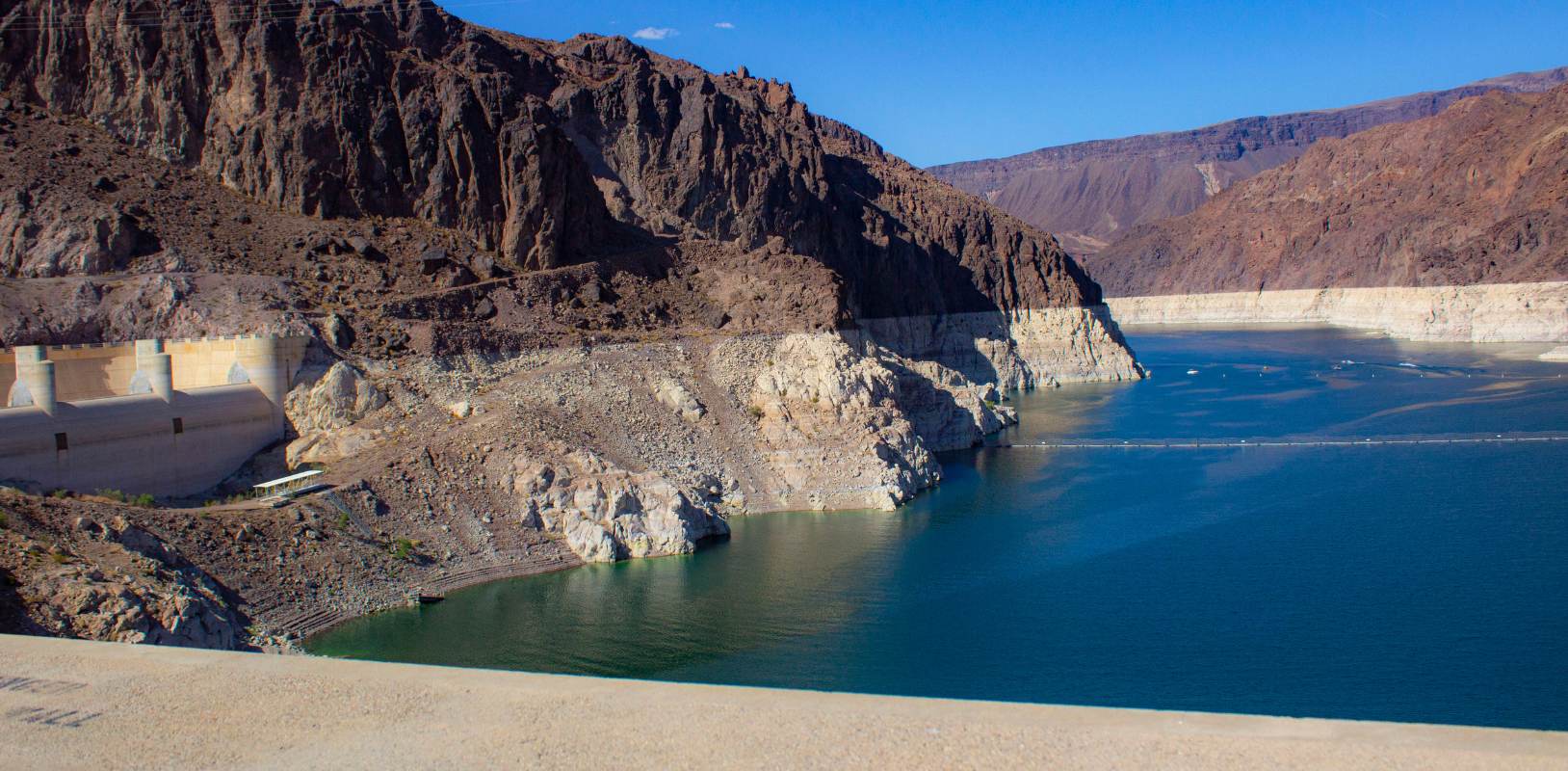Accidents can be highly stressful, leaving you feeling overwhelmed, especially when you find yourself without a vehicle. If you’re in Las Vegas and need a rental car because you’ve been in an accident, we created this guide to help you through the process.
How do I get a rental car after a car accident?
If you have been in a car crash in Las Vegas, simply contact a car rental company and make a reservation. Usually, it takes around three weeks for collision repairs on average. But keep in mind that the duration can differ based on the damage to your vehicle and your insurance policy terms.
Filing an Accident Report to Facilitate a Smooth Rental Car Process
In our guide on what to do after a car accident, one of the first steps is to file an accident report with the police. This document will help prove you were in a car accident and can help you get a rental car for a lower rate. Explore our guides to file a Las Vegas police report, file a police report in North Las Vegas, and filing a police report online in Henderson, NV.
In Las Vegas, you can report an accident to the Police Department. You will also need to file a claim with your insurance company for the rental car. Before you call, make sure you have all the necessary information regarding the accident, such as the date, location, and details about what occurred, readily available.

Who pays for a rental car after a no-fault accident?
Wondering who pays for a rental car after a car accident in Las Vegas? The party responsible for paying for a rental car after an accident typically depends on who was at fault in the accident and the specifics of the insurance policies involved. If the other driver was at fault, their insurance should pay for your rental car. If you were at fault, your insurance will only pay if you have rental reimbursement coverage. Check our guide if you are in a car accident no insurance.
How long will my auto insurance pay for a rental car after an accident?
In Las Vegas, the coverage for rental cars provided by different insurance companies may vary, but most of them offer coverage for up to 30 days. If a repair shop suggests a five-day repair period, the insurance company of the at-fault driver must cover those same five days. However, it is important to note that you may need to get your car fixed at a specific auto repair facility approved by the insurance company.
Rental Car Costs and Duration
The price of renting a car in Las Vegas is not fixed and can fluctuate based on the type of car, rental company, and rental duration. Typically, an economy car rental can cost anywhere between $30 and $50 per day. It’s important to note that there may be restrictions on the rental period, and if you return the car late or with less fuel than when you received it, you may be subject to additional fees.
What kind of rental car can I get after a no-fault accident?
After an accident, the type of rental car you can receive will depend on the rental company you choose and the specifics of your insurance policy. Typically, rental companies offer a variety of vehicles, ranging from economy cars to luxury SUVs. If you have any specific requirements, like needing a family-friendly car or accessibility features, it’s important to inform the rental company when making your reservation.
Required Documents for Car Rental After an Accident
Before you can drive off in your rental car after a car accident, the rental company will need to see certain documents. These are designed to confirm your identity, driving ability, and insurance coverage. Always prepare these documents ahead of time to ensure a smooth rental process. Here’s a list of what you’ll need:
- Valid Driver’s License: All car rental companies require a valid driver’s license. Make sure it is not expired.
- Proof of Insurance: Don’t forget to bring proof of insurance with you. The rental company must verify that you’re insured, and without proper documentation, you will not be able to rent the car.
- Accident Report: If you have been in an accident, it is significant to note that some car rental companies may request an accident report. And this could result in a lower rental rate! Check out our guides for obtaining an accident report from Las Vegas Metro, North Las Vegas PD, Henderson, NV, or Nevada Highway Patrol.
- Credit Card: A credit card is typically required by most car rental companies as a security deposit and to cover any extra charges that may arise during the rental period.
- Reservation Confirmation: If you have made a rental car reservation, it’s a good idea to have either a printed or electronic copy of your confirmation number to present when you go to pick up your vehicle.
In addition to these documents, some car rental companies may also ask for additional identification or a return ticket (if renting from an airport location). Always check the specific requirements with your chosen rental company before picking up your rental car.
Tips for Choosing a Rental Car and Company

- Check the coverage: Before renting a car, verify the extent of your insurance coverage. Some policies may cover rental cars.
- Compare prices: Look at different rental companies and compare their prices. Also, consider the daily rate and the total cost.
- Look for discounts: Some car rental companies offer discounts for accident rentals. It doesn’t hurt to ask!
- Review the fleet: Look at the types of vehicles the rental company offers. Ensure they have a suitable car available for your needs.
- Read reviews: Check online reviews of the rental companies you’re considering. Reviews will give an insight into the experiences of previous customers.
- Inspect the car: Before driving away, thoroughly inspect the rental car for any damages to avoid being held accountable for them later.
Las Vegas offers a variety of rental car options. Enterprise, Hertz, and Budget are companies that have multiple locations in the city and at the airport. They have a wide variety of vehicles available, ranging from economy cars to luxurious SUVs. If you have specific requirements, like a family-friendly vehicle or accessibility features, please inform them while making your reservation.
Searching for the Ideal Rental Car in Las Vegas
Once the accident report has been filed, you can begin your search for a rental car. Many car rental companies in Las Vegas offer competitive rates and discounts, so it’s worth shopping around before committing to one company. It’s also helpful to research the different types of cars available and decide what kind of vehicle best suits your needs.
Rental Car Reservation and Pickup
After selecting a rental company and vehicle, the next step is to make a reservation. This can typically be done conveniently either online or over the phone. When the time comes to pick up the car, it is important to remember to bring along your driver’s license, credit card, and proof of insurance.
Understanding Rental Car Policies and Restrictions in Las Vegas
Renting a car in Las Vegas comes with certain policies and restrictions to ensure customers’ safety and responsibility. Most rental companies require drivers to be at least 21 years old, with some charging extra fees for those under 25 due to their lack of driving experience and increased risk.
It is also quite common for companies to have policies about adding extra drivers. Typically, any extra drivers must be listed on the rental agreement, and supplementary charges may be added to your car rental cost.
Mileage limits are another restriction often put in place by rental car companies. While many companies offer unlimited mileage within a specific area, if you are planning a longer trip, make sure to verify whether your rental contract includes any mileage restrictions is important.
Lastly, companies may also set driving area restrictions. While you’re generally free to travel anywhere within Nevada, crossing state lines or traveling off-road might be prohibited based on your agreement.
In summary, to avoid any unexpected charges and have a hassle-free rental experience, it’s important to carefully review and understand all the car rental policies and restrictions you’re getting into before confirming your rental.
Final Checks Before Driving Off in Your Rental Car
Before driving off in your rental car, make sure to inspect the vehicle. Here are some rental vehicle inspection tips to consider:
- Inspect the Car for Damages: Check the exterior and interior of the car for any existing damages, such as dents, scratches, or stains. If you find anything, make sure to document it in your rental agreement and inform the rental company immediately.
- Take Photos for Proof: Before leaving the lot, make sure to take pictures of your rental vehicle. These photos can serve as evidence of the car’s condition before renting it and may be useful in any rental damage disputes.
- Check Car Features: Before driving away with your rental car, it’s also important to make sure all of its features are operating. This includes checking the lights, wipers, air conditioning, and radio. Also, if the car has advanced features such as GPS or Bluetooth, it’s a good idea to familiarize yourself with how they work beforehand.
- Familiarize Yourself with the Car: Get familiar with the controls and safety features of your car. It’s a good idea to know where the hazard lights button is located, how to adjust your seat and mirrors, and how to engage the gears, etc.
Taking a few extra minutes to get to know the rental car and document its condition before leaving the lot can save you from any potential disputes or surprise charges. It’s always better to have peace of mind when renting a vehicle.
Rental Car Return
When you return the rental car, make sure to thoroughly inspect it for any damages and remove all personal belongings. The rental company will conduct a detailed inspection and may apply charges for any damages identified. Additionally, refilling the gas tank before returning the car is advisable to avoid additional refueling fees.
Understanding Your Responsibilities and Coverage Options for Car Rental Insurance in Nevada
Simply put, when you rent a car, you enter into a contract with the rental company. The company agrees to let you drive their car, and you agree to return it in the same condition. If something happens to the car while you’re renting it, you will be held responsible for the damages. This is why you might consider rental car insurance.
In Nevada, you must meet the minimum insurance requirements when renting a car. These requirements include liability coverage, which provides protection for damages to another person’s vehicle in case you are responsible for an accident.
However, this doesn’t cover damages to the rental car itself. For that, you’ll need collision or comprehensive coverage. Some insurance policies include rental reimbursement coverage, which can help cover the cost of a rental car while your vehicle is being repaired.
Rental Car Insurance
When you rent a car in Las Vegas, the rental company may offer you extra insurance coverage options like Collision Damage Waiver (CDW) or Loss Damage Waiver (LDW). These coverages are meant to protect you from any financial liabilities if the rental car gets damaged or stolen while in your possession.
CDW covers the repair costs if the rental car is damaged during a collision, while LDW covers the loss of the rental car due to theft.
However, it’s important to note that your personal car insurance or credit card insurance may already provide similar coverage. So it’s a good idea to check your existing policies before choosing additional insurance from the rental company. This will help you avoid paying for duplicate coverage, ensuring that you are sufficiently covered without increasing your car rental expenses.
Temporary Transportation Alternatives
If a rental car isn’t immediately available, Las Vegas has a lot of alternative transportation options. Here are a few you may consider:
- Ridesharing Services: Companies like Uber and Lyft operate extensively in Las Vegas, providing convenient and often cost-effective transportation. You can book a ride via their respective apps and be picked up from your location.
- Public Bus System: The Regional Transportation Commission (RTC) operates the public bus system in Las Vegas. It offers a comprehensive network of routes covering most areas of the city.
- Bike or Scooter Rental: For shorter distances or if you’re looking for a more active mode of transport, consider renting a bike or scooter. Several companies offer this service in Las Vegas, allowing you to rent by the hour or day.
- Taxis: Traditional taxis are also readily available throughout the city. They can be hailed on the street, found at designated taxi ranks, or booked via phone or mobile apps.
Remember, each option has its advantages and considerations, such as cost, convenience, and flexibility. Choose the one that best meets your needs and preferences.
Rental Car Safety and Responsibilities
When driving a rental car, prioritize safety by obeying traffic laws. If there are any accidents or damages, inform the rental company immediately.
Dealing with Rental Car Disputes
Disputes with rental car companies or insurance providers can be stressful, especially after an accident. Here are some steps you can take to resolve these issues:
- Document Everything: Record all your interactions with the rental car company and your insurance provider. This includes contracts, receipts, emails, and phone calls.
- Stay Calm and Professional: It’s easy to get frustrated, but it’s important to stay calm and professional. This will help you communicate more effectively and increase your chances of a positive outcome.
- Understand Your Rights: Research your rights as a consumer. This can help you understand your rights and the company’s obligations.
- Seek Legal Advice: If you cannot resolve the dispute on your own, you may want to seek legal advice. A Las Vegas car accident lawyer can help you understand your options and guide you through the process.
- File a Complaint: If you believe the rental car company or insurance provider has acted unfairly, you can file a complaint with the Office of the Nevada Attorney General or the Better Business Bureau.
Dealing with Delayed Repairs
If you find yourself in a situation where vehicle repairs are taking longer than anticipated, extending your rental period in Las Vegas is generally a straightforward process. Most car rental companies in the city are adaptable regarding extensions, though you should inform them as soon as you realize you’ll need the car for a longer period.
This proactive communication can help avoid potential conflicts or additional charges. However, it’s crucial to understand that extension rates sometimes differ from the initial rental rate. Furthermore, availability might be affected during peak periods such as holidays or major events in the city. So, discussing the terms clearly with the rental company when requesting an extension is always wise.
A Few Tips for Safe Driving in Las Vegas
Driving in Las Vegas can be a unique experience, with heavy traffic on the Strip and high temperatures that can affect your vehicle. Here are some tips for safe driving in the city:
- Stay Hydrated: The desert heat can be intense, especially in the summer. Make sure to drink plenty of water and keep extra in your car.
- Avoid Peak Traffic Times: Traffic can be heavy during rush hour and when major events are happening. Try to plan your driving to avoid these times.
- Watch for Pedestrians: Las Vegas is a busy city with many pedestrians. Always be aware of your surroundings and watch for people crossing the street.
- Follow Local Traffic Laws: Make sure to follow all local traffic laws, including speed limits and rules about turning and merging. Practice defensive driving and be aware of your surroundings at all times.
- Be Prepared for Bright Sunlight: The desert sun can be very bright, making it hard to see. Keep a pair of sunglasses in your car and use your sun visor.
- Watch for Wildlife: While it’s not common in the city, you may encounter wildlife on the roads outside Las Vegas. Be cautious, especially at dawn and dusk when animals are most active.
Remember, safety should always be your top priority when driving. If you’re involved in an accident, stay calm, make sure everyone is safe, and contact the appropriate authorities.






